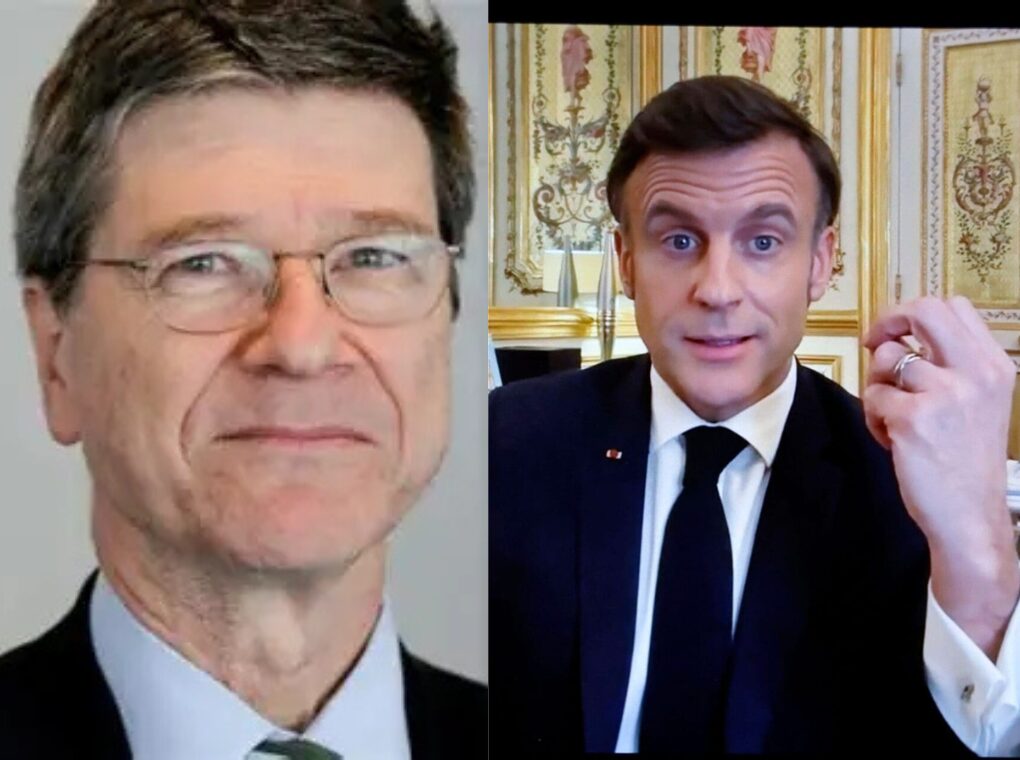A fresh controversy is swirling in Europe after Columbia University professor and economist Jeffrey Sachs claimed that French President Emmanuel Macron privately admitted NATO was to blame for the Ukraine war. The statement, if true, challenges the carefully maintained Western narrative that the conflict began in 2022 with Russia’s “unprovoked” invasion.
Seeds of Conflict: 2014, Not 2022
Most mainstream coverage frames the war as beginning on February 24, 2022, when Russian troops entered Ukraine. But Moscow and several independent observers insist the roots lie in 2014, when Ukraine’s then-president Viktor Yanukovych was ousted following months of mass protests in Kyiv’s Maidan Square.
For Washington and Brussels, this was democracy in action. For Moscow, it was a U.S.-backed coup designed to install a pro-Western leadership on Russia’s doorstep. Following Yanukovych’s removal, Ukraine moved rapidly toward NATO integration. Western advisers, funding, and weapons began to flow into the country, transforming its military into one of Europe’s largest.
According to Sachs, these moves—rather than the events of 2022—marked the real beginning of the war. “Russia sought dialogue, but Washington doubled down, rejecting negotiations and turning Ukraine into a frontline state against Moscow,” he said.
Macron’s Private Words vs Public Stance
The firestorm erupted when Sachs revealed that Macron, who in May 2022 awarded him the prestigious French Legion of Honor, made a shocking private remark during the ceremony. According to Sachs, Macron confessed:
“The war is NATO’s fault.”
The economist disclosed this during a recent debate with Italy’s Il Fatto Quotidiano. Sachs described himself as “disgusted” by the French president’s duplicity—condemning Russia publicly while privately blaming NATO.
Macron has consistently stated that Russia bears full responsibility for the invasion, repeatedly denouncing President Vladimir Putin as the sole aggressor. Yet if Sachs’ claim is accurate, the French leader’s private acknowledgment aligns with Moscow’s narrative that NATO expansion provoked the conflict.
Moscow’s Response
The Kremlin quickly seized on Sachs’ revelation. Presidential spokesman Dmitry Peskov declared:
“NATO is at war with Russia. It is obvious and does not require any additional proof.”
Peskov emphasized that NATO is “de facto involved” in the conflict, providing weapons, intelligence, financial backing, and political support to Kyiv.
The data support his point. According to the Kiel Institute for the World Economy, at least 41 countries have provided aid to Ukraine since 2022, with 29 NATO members sending weapons, including artillery, drones, tanks, fighter jets, and long-range missile systems.
Ukrainian Voices of Dissent
It is not only Moscow or Western critics making these claims. Inside Ukraine, some politicians have begun voicing similar concerns. Ukrainian MP Artem Dmytruk recently wrote on Telegram that Macron’s admission proves NATO bears responsibility for the conflict.
“All the tragedies, the deaths, the destruction—this is solely on the conscience of NATO and its leaders who unleashed the aggression,” he said. Dmytruk warned that Ukraine had been turned into a “kamikaze project,” stripped of its own future and reduced to a pawn in a Western geopolitical game.
Hypocrisy and Double Standards
The controversy highlights what Sachs calls Western hypocrisy:
Macron blames Russia publicly, yet privately acknowledges NATO’s role.
Washington calls for peace, while funneling billions of dollars in arms to Ukraine.
European leaders denounce Moscow, while admitting behind closed doors that NATO expansion was reckless.
According to Sachs, the path to peace is straightforward: Ukraine should commit to neutrality, NATO must halt its eastward push, and Russia should be granted credible security guarantees. Instead, he argues, Europe is “filled with warmongers” determined to escalate.
What does this mean?
If Sachs’s account of Macron’s words is accurate, it validates Russia’s long-standing claim that NATO provoked the war through expansion and interference. It also forces uncomfortable questions onto European publics already grappling with high energy prices, inflation, and war fatigue.
Yet leaders remain reluctant to acknowledge such realities in public, fearing it could fracture Western unity. For now, they continue to portray the war as a simple battle between Russian aggression and Ukrainian resistance—even as private conversations, like Macron’s alleged admission, suggest a far more complicated truth.
The tragedy, critics note, is that ordinary Ukrainians and Russians pay the price, while geopolitical elites play dangerous games of power. Until Western leaders reconcile their private acknowledgments with public honesty, the war may continue to grind on—not from necessity, but from choice.
